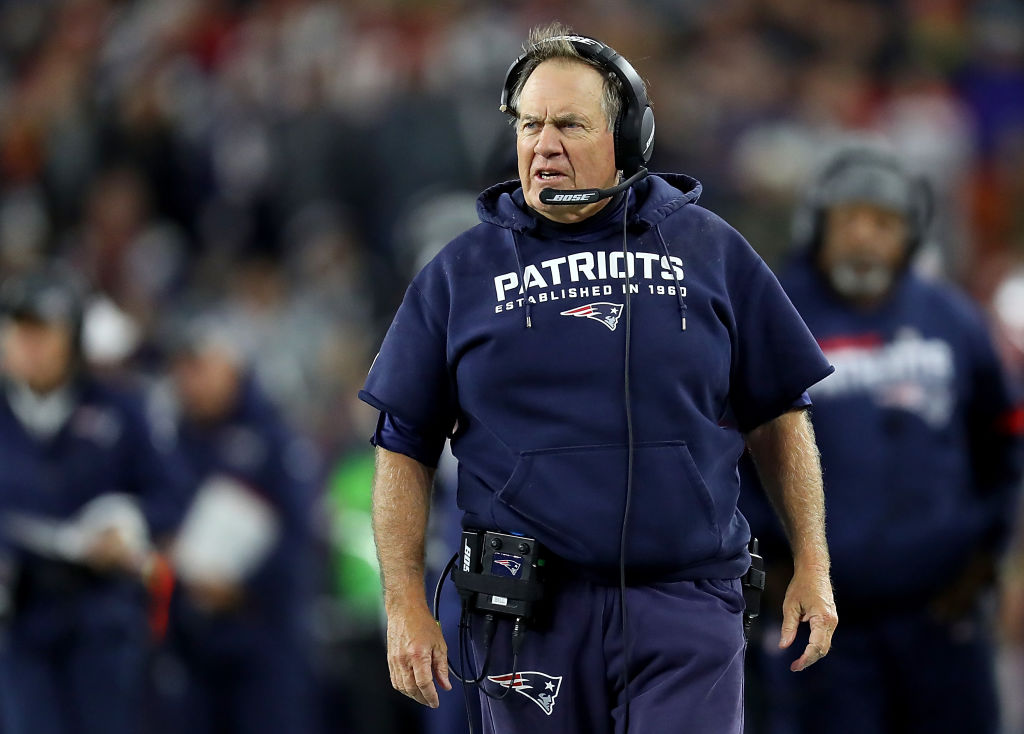NFL
NFL: Even Bill Belichick Has Given Up On Pass Interference Challenges

When it comes to NFL coaches, there are very few men more competitive than Bill Belichick. He’s won six Super Bowls as a head coach, two more as a defensive coordinator, and has been named NFL Coach of the Year on three separate occasions; on the gridiron, there’s very little that he hasn’t done.
But even Bill Belichick doesn’t think he can win a pass interference challenge. The Patriots head coach has admitted that he simply doesn’t think the risk of throwing the red flag is worth the reward.
Bill Belichick’s winning record
Once Belichick’s college football career ended, he immediately began coaching. He spent one season working as a special assistant for the Baltimore Colts, before moving on to the Detroit Lions and Denver Broncos. He truly came into his own, however, with the New York Giants.
In New York, Belichick worked his way up the food chain to defensive coordinator, working with a unit led by Lawrence Taylor. The Giants captured two Super Bowl titles, topping the Denver Broncos in 1986 and upsetting the Buffalo Bills in 1990. That success would help Belichick make the leap to head coaching; he would briefly lead the Cleveland Browns, before serving as an assistant coach for the Patriots and Jets. In 2000, however, he returned to New England, setting history in motion.
Once with the Patriots, Belichick took full control of the franchise. Once Tom Brady assumed the starting quarterback role in 2001, the rest was history. Since then, the pair have won just about everything there is to win.
Even Bill Belichick can’t win pass interference challenges
This season, NFL coaches are allowed to challenge pass interference calls. Belichick, however, is yet to throw his red flag and ask for a penalty review. The Patriots coach simply doesn’t think the risk is worth the reward.
“I think it’s been pretty clear and the league has come out and said, it has to be clear and obvious,” Belichick explained. “What the definition of that is, I’m not sure. But I don’t think there can be much gray area, or it’s not clear and obvious. I haven’t studied all of them, but a lot of the ones that I’ve observed or have been in our games, I can see why they were called the way they were.”
In a league of fine margins like the NFL, a time out can make the difference between a loss and a win. If you don’t think you have a shot at winning your challenge, it’s hard to justify burning a valuable asset.
Does the challenge system need to change?
While the system to review an incorrectly called penalty is now in place, there’s obviously an issue. If coaches aren’t throwing the red flag since challenges are unwinnable, things need to change.
As Belichick pointed out, the main sticking point comes in the definition of “clear and obvious.” While that seems like a reasonable standard—no one wants to overturn every slightly questionable decision—things don’t work as smoothly in practice. In a world of judgment calls, very few things can clear that high bar. Even if the replay seems to contradict the call on the field, the wording of the rule gives referees enough wiggle room to stand by their original call. “Clear and obvious” has become a shorthand for “we’re not changing anything unless it’s so egregious we have to.”
Unfortunately, this situation will sound all too similar to NFL fans; it’s like trying to define what is and isn’t a catch, all over again. Ideally, the league should sort things out and clarify the rules, but that probably won’t happen anytime soon. In the meantime, it’s probably best if we all act like Belichick and pretend we can’t challenge pass interference.











